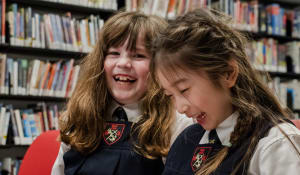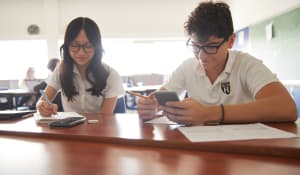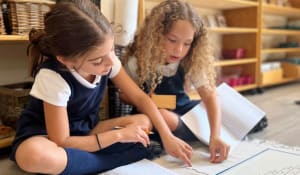Also, do the teachers have ongoing professional development pertaining to equity? Resources such as time and money are so precious in schools, and they are typically used on one-time events or programs rather than long-term solutions. Are groups, including parent groups, reflective of the diversity of the student population? Are students able to talk openly about their school experience, or are there not opportunities for them to evaluate and provide feedback? If all stakeholders are not engaged in decision-making, educators might have a difficult time understanding the ways in which they are perpetuating inequities.
It is even more essential to know how to validate and engage students instead of assuming a one-size-fits all mentality.
In addition, does the school's definition of diversity reflect all forms of diversity, including socio-economic, sexual orientation, gender identity and others, or is it limited to certain types? Often, schools may address racial and linguistic diversity without considering others until issues arise. The aforementioned questions are just some that need to be asked by educators, as a starting point, in order to understand how to foster inclusive schools.
Q: How can educators balance the limits to cultural acceptance, if there are any, with cultural preservation and the need to be tolerant and accepting of difference?
A: I believe there are limits to cultural acceptance, but unfortunately these are not easily defined and cannot be captured on a checklist. Educators need to understand the cultural practice and why it creates discomfort with others before reaching a conclusion. Because educators have tremendous responsibilities, they need professional development focusing on understanding equity and how to facilitate difficult conversations pertaining to difference and acceptance so that the concerns can be educational opportunities rather than issues.
Q: What is diversity's role in promoting the success of students and schools?
A: Understanding the role of diversity as it pertains to student engagement is critical in promoting the success of schools, whether private or public. I have been in countless situations where educators continue to seek new strategies in certain subject areas in order to engage their students, only to have them all fail because there is a disconnect between the students and the teacher. This disconnect often stems from biases about the student or teacher based on some dimension of identity.
If the student feels the teacher does not value and respect them, the best content-based strategies are wasted and the teacher becomes more cynical or disheartened. A vicious cycle of low expectations is created when the teacher's attempts fail and thus perpetuate the belief that the student cannot learn.
I urge educators to take a step back and evaluate the bigger picture. This includes understanding systemic inequities in schools such as student access to rigorous courses, low expectations and barriers to family involvement. It also includes understanding the difference between intent (what one hopes to accomplish) and impact (what is actually accomplished). What educators mean to convey through actions, words or expressions may not be received by students in the intended way and thus good intentions simply are not enough. Evaluating the bigger picture also includes an honest examination of biases. Only then can we begin to meaningfully engage students and allow them to be successful in their learning.






















